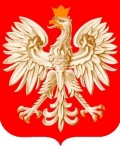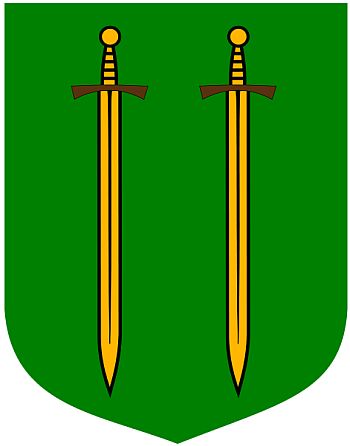Grunwald: Difference between revisions
Jump to navigation
Jump to search
Knorrepoes (talk | contribs) m (Text replacement - "{{media}} Literature : [[" to "Literature : {{media}} [[") |
Knorrepoes (talk | contribs) m (Text replacement - "|'''English''' ↵| {{blazon wanted}}" to "|'''English''' | blazon wanted") |
||
| Line 15: | Line 15: | ||
|- | |- | ||
|'''English''' | |'''English''' | ||
| | | blazon wanted | ||
|} | |} | ||
Revision as of 09:18, 7 April 2023
Poland heraldry portal
This page is part of the Poland heraldry portal |
Heraldry of the World |
|
Civic heraldry:
|
Other heraldry: |
GRUNWALD
Province: Warmia i Mazury
County: Ostróda
| Polish | No blazon/translation known. Please click here to send your (heraldic !) blazon or translation |
| English | blazon wanted |
Origin/meaning
The two swords refer to the battles of Grunwald.
The first is the Battle of Grunwald (also known as Battle of Tannenberg) in 1410, where the alliance of the Kingdom of Poland and the Grand Duchy of Lithuania, decisively defeated the German–Prussian Teutonic Knights.
The second is a battle at nearly the same place in 1914 between Russia and Germany during the first month of World War I.
The green colour is a canting element (Grun=green in German).
Contact and Support
Partners:
Your logo here ?
Contact us
© since 1995, Heraldry of the World, Ralf Hartemink 
Index of the site












